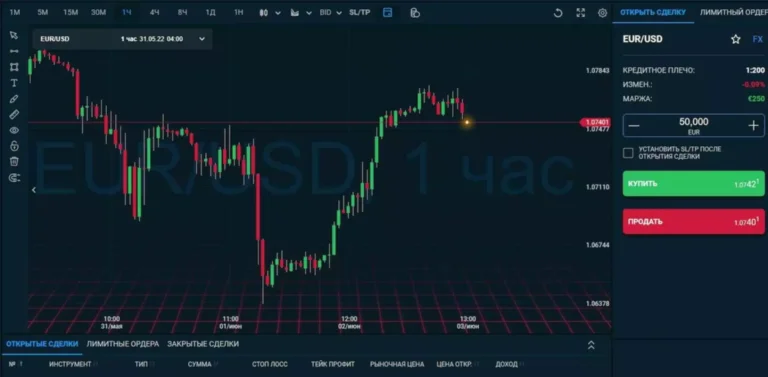Stock Trading vs Investing: Whats the Difference?
Content
1 View our margin rates.2 This excludes 6am to 4pm (UTC+8) on Saturdays. Smart contract Only selected indices and the GBP/USD forex pair are available for weekend trading. A no-fee, no-commission reinvestment program that allows you to reinvest dividends and/or capital gains distributions. There are no account minimums to buy stocks in your Vanguard Brokerage Account.

Best Tax Software For The Self-Employed Of 2022

Traders often focus on a stock’s technical factors rather than a company’s long-term prospects. What matters to traders trading and investing difference is which direction the stock will move next and how the trader can profit from that move. So investors are more likely to prefer a passive approach to the markets, whether they invest in individual companies or funds.
Build your portfolio starting with just $1

Understanding these distinctions is a vital step toward building a successful investment strategy tailored to your needs. In short, https://www.xcritical.com/ We believe that day traders are at a better place to maximize opportunities that long-term value investors. At one point in time, asset prices will move up while in other times, markets will fall.
Tax Treatment: Forex Vs. Equities
- Views expressed are as of the date indicated, based on the information available at that time, and may change based on market or other conditions.
- Leverage involves borrowing money, and when it comes to stocks, it means trading on margin.
- So trading is just shuffling money around from player to player, with the sharpest players rolling up more money over time from less-adept players.
- Stock index e-mini futures are other popular instruments based on the underlying indexes.
- Since the goal is to grow a retirement account over decades, the day-to-day fluctuations of different mutual funds are less important than consistent growth over an extended period.
- The goal is to generate returns that outperform buy-and-hold investing.
- If you want to try trading without worrying about losing your shirt, pick a broker that offers paper, aka virtual, trading.
Passive investing is a buy-and-hold strategy that relies on the fundamental performance of the underlying businesses to drive returns higher. So when you take a stake, you expect to hold it for a while, not simply sell it when the price jumps or before the next person offloads their stake. People often confuse investing and trading, using the terms interchangeably. But it’s easy to see why because there are some distinct similarities, such as the need to open accounts, deposit money, and buy and sell assets. The length of time that an investor and trader hold their assets diverges.
Meanwhile, investors face a lower probability of outperforming market averages, which can be frustrating for those seeking exceptional returns. Passive investors, on the other hand, emphasize simplicity and long-term growth. They focus on creating a low-cost, broadly diversified portfolio that requires minimal ongoing management. Dividends are often reinvested, allowing their investments to compound over time. This approach aligns with long-term goals, such as saving for retirement, with the primary aim of matching market returns rather than outpacing them.
That might sound like the same thing, but there are differences between the two. In this article, we’ll examine each and show you how to trade and invest wisely. You create a tax liability every time you realize profits on an asset sale. So traders who bounce in and out of the market are realizing profits (or losses) all the time. That reduces their ability to compound gains, because they have to cut the IRS in for a slice of every gain they realize.
Investors primarily buy assets that they expect to rise over the next year or more. Falling prices are typically used to accumulate long positions instead of trying to short and profit from the decline. A short-term trader may define an exact level to exit a losing trade and take profit on a winning trade. For example, they may be willing to lose 5% but will take profit if they make 15%. Investing and trading have several differences, including strategy, duration, costs, taxes, activity level and more.
So trading is just shuffling money around from player to player, with the sharpest players rolling up more money over time from less-adept players. In contrast, investors are playing a positive sum game, where more than one person can win. We are an independent, advertising-supported comparison service. Investors often enhance their profits by compounding or reinvesting any profits and dividends into additional shares of stock. Options trading entails significant risk and is not appropriate for all investors. Before trading options, please read Characteristics and Risks of Standardized Options.
The volatility and liquidity of the e-mini contracts are enjoyed by the many short-term traders who participate in stock market indexes. Today’s active investors and traders have access to a growing number of trading instruments, from tried-and-true blue chip stocks to the fast-paced futures and foreign exchange (or forex) markets. Deciding which of these markets to trade can be complicated, and many factors need to be considered in order to make the best choice. Long-term investing can also offer tax planning opportunities typically unavailable in a stock picking approach. When you’re not trading all the time, you reduce portfolio turnover, which can help lower your tax bill. And when you do need to sell a fund, if you’re working with a financial advisor, they can work to offset the tax impact by picking specific lots or tax-loss harvesting.
Online platform to invest in stocks, derivatives, mutual funds, ETFs, bonds, and more. You must buy and sell Vanguard ETF Shares through Vanguard Brokerage Services (we offer them commission-free online) or through another broker (who may charge commissions). See the Vanguard Brokerage Services Commission and Fee Schedules for limits. Vanguard ETF Shares are not redeemable directly with the issuing Fund other than in very large aggregations worth millions of dollars. When buying or selling an ETF, you will pay or receive the current market price, which may be more or less than net asset value.
As noted above, investors normally have a longer time horizon in mind. Traders, on the other hand, normally hold onto their assets for short time frames. One difference is that trading share CFDs won’t give you ownership of the shares in question, while share dealing will.
Investing and trading are two different methods of attempting to profit in the financial markets. Both investors and traders seek profits through market participation. Investors generally seek larger returns over an extended period through buying and holding. Traders, by contrast, take advantage of both rising and falling markets to enter and exit positions over a shorter time frame, taking smaller, more frequent profits.
Our risk-free demo account allows you to practise trading with £10,000 of virtual funds. Once comfortable, you can transition to a live account to start placing trades with real money. Traders may also utilise ETFs, but typically only the ones with high volume and movement. The high volume allows traders to enter and exit with ease, while the movement provides a profit opportunity. Our exclusive share baskets can also be an efficient way for a trader to speculate on the price movements of a number of stocks using only single position. While they both involve assets and financial markets, trading and investing are two different strategies with two different goals.
The same is true with investing and trading, though investing may help you pay less in taxes. That’s because any profits you see on individual stocks, ETFs, and mutual funds are taxed based on the amount of time you hold them. For investments you own for less than a year, like those you trade over short periods, you’ll likely pay taxes on the earnings at the same rate you would on your paycheck.